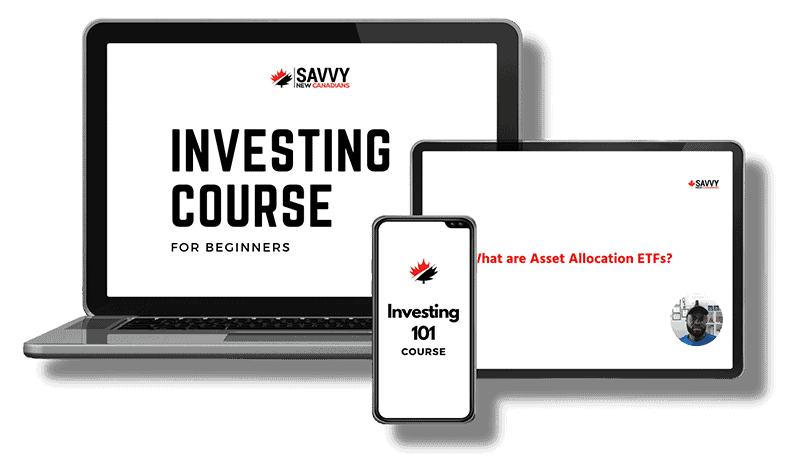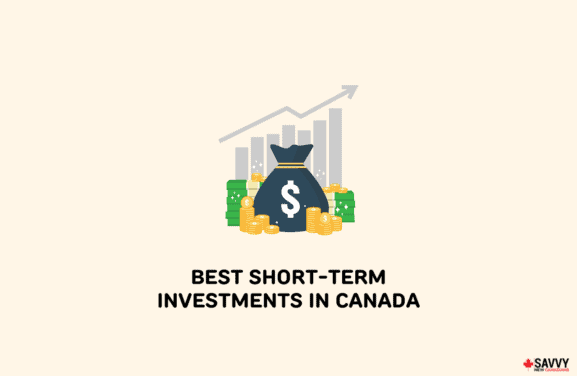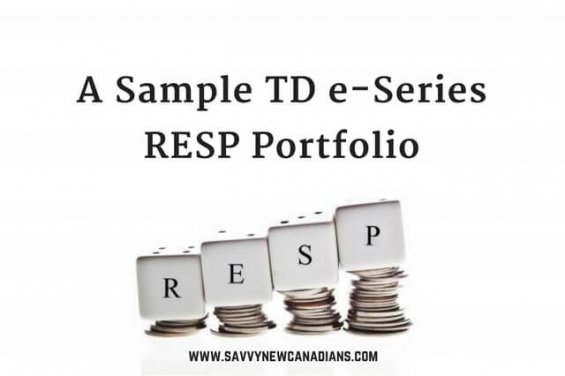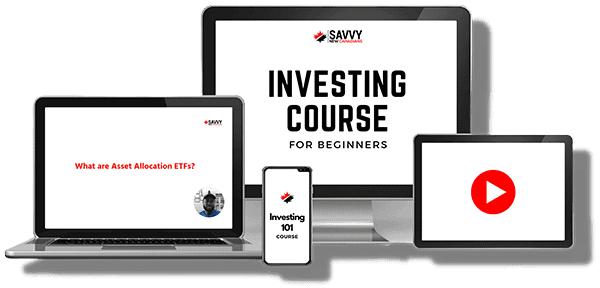Canadian investors know all about natural resources and big banks when investing in the TSX. But one industry that is often overlooked in Canada is infrastructure.
Some examples of infrastructure investments include physical assets like bridges, roads, airports, and utilities.
Most infrastructure companies focus on a specific asset type. If you want more diversity, infrastructure ETFs provide exposure to a wide range of stocks in various fields.
Investing in infrastructure ETFs can provide a stable position in your portfolio. These companies also pay steady dividends and are typically recession-proof as well. No matter what type of economic environment we are in, we will always use physical infrastructure daily.
On the flip side, in a more bullish market, infrastructure stocks and ETFs tend to lag behind other sectors that are experiencing higher growth.
Best Infrastructure ETFs in Canada for 2024
Here are five picks for the best infrastructure ETFs in Canada for 2024.
1. BMO Global Infrastructure Index ETF
Here are some key facts about this ETF:
- Ticker Symbol: TSE: ZGI
- Inception Date: January 19, 2010
- Assets Under Management: $593 million
- MER: 0.61%
- Number of Holdings: 50
- Distribution Yield: 2.97%
- Distribution Frequency: Quarterly
- 1-Year Returns: +4.77%
ZGI is a BMO Global Asset Management ETF that holds 50 infrastructure stocks with a 69.23% allocation to the United States and 22.58% to Canadian companies. It also holds stocks from the United Kingdom, Brazil, and Mexico.
The five largest holdings in this ETF are American Tower Corp (AMT), Enbridge Inc (ENB), Crown Castle Inc (CCI), Sempra Energy (SRE), and National Grid plc (NGG).
This fund focuses on utilities and real estate. It has a sector allocation of 35% to pipelines, 29.9% to electricity, and 22.11% to REITs.
2. TD Active Global Infrastructure ETF
Here are some key facts about this ETF:
- Ticker Symbol: TSE: TINF
- Inception Date: May 26th, 2010
- Assets Under Management: $101 million
- MER: 0.70%
- Number of Holdings: 56
- Distribution Yield: 3.20%
- Distribution Frequency: Quarterly
- 1-Year Returns: +3.78%
TINF is a TD Global Asset Management ETF that focuses on a balanced approach to the global infrastructure industry. It has a 42.70% allocation to US stocks, a 21.20% allocation to the European Union, a 15.40% allocation to Canadian stocks, and an 11.70% allocation to Asian stocks.
This fund has a 40% allocation to utility stocks and a 35.8% allocation to industrial services. The five largest holdings are NextEra Energy (NEE), Enbridge Inc (ENB), Transurban Group (TCL.AX), Aena SME SA (AENA.MC), and Southern Co (SO).
Related: Best emerging market ETFs in Canada.
Here are some key facts about this ETF:
- Ticker Symbol: TSE: CIF
- Inception Date: August 27th, 2008
- Assets Under Management: $323 million
- MER: 0.73%
- Number of Holdings: 60
- Distribution Yield: 2.06%
- Distribution Frequency: Quarterly
- 1-Year Returns: +6.71%
CIF is an iShares Blackrock infrastructure ETF that primarily holds American and Canadian companies. More than 86% of the holdings are from these two markets.
The five largest stock allocations for CIF include Okeok Inc (OKE), Sterling Infrastructure Inc (STRL), Canadian Utilities Ltd Class A (CU), Gibson Energy Inc (GEI), and Atco Ltd Class 1 (ACO).
This fund is designed to track the benchmark Manulife Investment Management Global Infrastructure Index. While it has a cumulative return of 147% since its inception, it has high MER fees, which can eat into long-term profits.
4. Horizons North American Infrastructure Development Index ETF
Here are some key facts about this ETF:
- Ticker Symbol: TSE: BLDR
- Inception Date: October 26th, 2021
- Assets Under Management: $2.9 million
- MER: 0.71%
- Number of Holdings: 50
- Distribution Yield: 0.46%
- Distribution Frequency: Annual
- 1-Year Returns: -4.57%
BLDR is the newest Canadian infrastructure ETF on our list, having only been established in 2021. As its name suggests, BLDR only holds American and Canadian companies.
The five largest holdings in BLDR are some familiar blue-chip names. These stocks are Deere & Co (DE), Caterpillar Inc (CAT), Union Pacific Corp (UNP), Canadian National Railway Co (CNR), and Canadian Pacific Railway Ltd (CP).
The low dividend yield, annual distribution frequency, and high MER might turn some investors off of BLDR. Especially those looking for steady income flow from these high cash-flow infrastructure companies.
Related: Best China ETFs to buy in Canada.
5. Dynamic Active Global Infrastructure ETF
Here are some key facts about this ETF:
- Ticker Symbol: TSE: DXN
- Inception Date: February 2020
- Assets Under Management: $22 million
- MER: 0.92%
- Number of Holdings: 34
- Distribution Yield: 1.53%
- Distribution Frequency: Quarterly
- 1-Year Returns: -1.4%
DXN is an actively managed Canadian infrastructure ETF. This means that the fund managers are actively trading the holdings, creating dynamic performance. This also typically leads to a higher MER, and at 0.92%, it is the highest MER on our list.
The dynamic nature of DXN makes it difficult to pin down the fund’s holdings. It currently has a 48% allocation to US stocks and a 15.9% allocation to Canadian stocks. DXN also holds stocks from Spain, France, Australia, and the United Kingdom.
The five largest holdings in DXN are NextEra Energy (NEE), Atmos Energy Corporation (ATO), Brookfield Infrastructure Partners (BIP), FirstEnergy Corp (FE), and Ferrovial, SA (FER.MC).
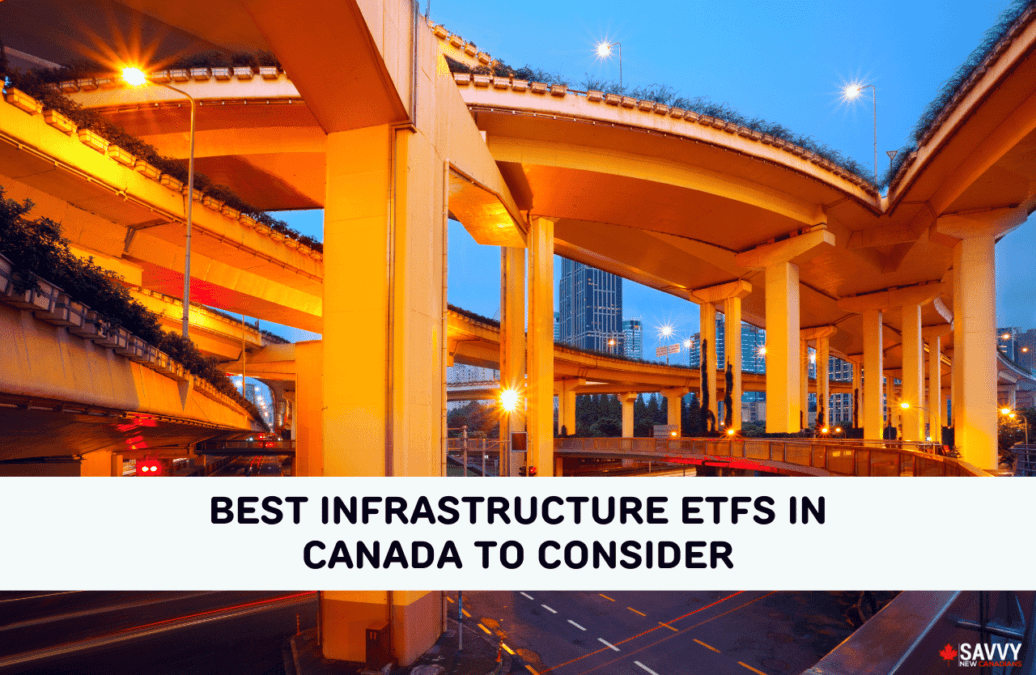
How To Buy Infrastructure ETFs in Canada in 2024
Once you have chosen a Canadian infrastructure ETF to invest in, only one question remains: how to buy infrastructure ETFs in Canada? These TSX ETFs can be bought at any brokerage, but there are plenty of discount brokerages in Canada that can provide minimal or even zero-commission trades.
Wealthsimple Trade

Trade stocks, ETFs, and options
Excellent trading platform for beginners
Deposit $150+ to get a $25 cash bonus
Transfer fees waived up to $150
Questrade

Trade stocks, ETFs, options, FX, bonds, CFDs, mutual funds, etc.
Get $50 trade credit with $1,000 funding
Low and competitive trading fees
No quarterly inactivity fees
Access to advanced tools and trading data
Top platform for advanced traders
Transfer fees waived
Infrastructure ETFs Explained
Infrastructure ETFs are funds that hold a basket of different infrastructure-related stocks. These are typically from industries like utilities, energy sources, railroads, and public buildings.
These ETFs provide exposure to the physical assets we use daily. It is a diverse industry that encapsulates a wide range of different sectors.
Depending on which benchmark index the ETF is tracking, each infrastructure ETF can look vastly different from another.
One thing most of them have in common is steady performance during any type of market and a consistent stream of dividend distributions.
The good thing about infrastructure is that as the world continues to grow and the population rises, global infrastructure will always need to be improved and increased.
Should You Consider Infrastructure ETFs?
One word: stability. Just as public infrastructure is the backbone of our society, infrastructure ETFs also provide a wonderful and stable foundation for your portfolio.
It is an industry that never goes out of fashion and always needs to be updated. Every country in the world spends on infrastructure which gives these stocks a high-performance floor.
Downsides of Infrastructure ETFs
Infrastructure ETFs are generally considered to be of low volatility and recession-proof. As we have seen, these stocks usually hold up well in a bear market. But in a bull market, infrastructure ETFs tend to get left behind by their high-growth peers.
The performance of these funds is slow and steady. Some infrastructure ETFs may hold more cyclical stocks, which can result in some periods of waning returns.
Methodology of Choosing Infrastructure ETFs
The methodology of choosing infrastructure ETFs is no different from other funds: targeting a lower MER and solid dividend yield is a winning formula.
Given that most infrastructure ETFs on the TSX hold global stocks, you will find that the MERs are higher than other funds. If the MER is similar between funds, then find an infrastructure ETF that focuses on a sector that you believe in.
For example, you might be more inclined to invest in clean energy ETFs as a way of being bullish on future technology and climate change.
FAQs
As of 2023, Vanguard Canada does not have an infrastructure ETF on the TSX. The closest thing is the Vanguard Global Infrastructure Index ETF (VBLD), which trades on the Australian Stock Exchange.
There are no construction-specific ETFs that trade on the TSX in Canada. The closest might be BLDR, the Horizons North American Infrastructure Development Index ETF. Several construction-related ETFs trade in the United States, including the iShares US Home Construction ETF (ITB) and SPDR S&P Homebuilders ETF (XHB).
Related: Best Paper Trading Platforms in Canada.
